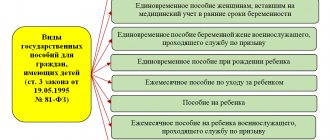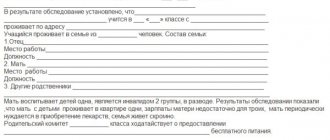Police work involves risks to health and life, and it also involves constant physical and emotional stress. The dedication of employees of the Ministry of Internal Affairs is compensated not only by wages, but also by a number of benefits that allow police officers to receive material and other benefits. The most significant benefits for employees are the provision of subsidies for the purchase of housing. For police officers, the issue of purchasing real estate is as pressing as for other categories of citizens. State programs allow employees of the Ministry of Internal Affairs to receive financial assistance to solve housing problems.
Legal basis
Legislative norms providing for the rights of employees of the Ministry of Internal Affairs to obtain housing are regulated by Federal Law No. 247-FZ “On social guarantees for employees of the Ministry of Internal Affairs of the Russian Federation...” adopted on July 19, 2011. This regulatory act explains on what basis official real estate is allocated to police officers for permanent residence. The principles of registration of a subsidy and its payment are documented in another legislative act - Decree of the Government of the Russian Federation No. 1223 “On the provision of a one-time social payment ... to employees of the Ministry of Internal Affairs of the Russian Federation” dated December 30, 2011.
These two legislative acts fully regulate the issue of providing state support to police officers. In addition to these, there is also a Housing program. It was developed back in 2002, but it is constantly being extended. According to Resolution No. 889 adopted on August 25, 2015, the federal state program was extended for 2018-2020.
Need for housing
Preferential subsidy programs for police officers imply that financial assistance will be provided only to those categories that do not have their own apartment or their living conditions need to be improved. It is not possible to receive government assistance if you have comfortable real estate.
The need for housing is determined by several criteria at once. Lack of home ownership does not always entail automatic recognition of a person as needy. When considering the situation, the real estate owned by his family members is also taken into account. But there are also the opposite situations, when there is housing, but it is not equipped or does not meet the area standards, then a citizen may be recognized as in need of improving existing conditions.
The main principle of the program is to improve the quality of life of a police officer. The more stable a person’s financial situation is, the better he works, without being distracted by external stimuli in the form of constant worries about the lack of his own living space. In addition, the opportunity to receive a housing subsidy attracts people to the authorities and increases the prestige of this profession.
○ Possible reasons for failure
Based on the results of reviewing the documents, one of two possible decisions is made:
- Put it on the waiting list and include it in the state program to improve housing conditions.
- Refuse to put on the queue.
The reasons for refusal may include the following:
- Inclusion of false information in the content of documents submitted for consideration by the housing commission of the relevant department.
- The applicant does not have legal grounds for inclusion in the current government program.
- The applicant had previously benefited from a housing subsidy, which was provided from the state budget.
If an incomplete package of documents has been submitted, the applicant will be given the opportunity to complete all the necessary papers, after which they will be submitted to the housing commission for consideration.
Registration
To obtain the official status of a person in need, you need to make an important move - register. The queue of citizens in need is formed in two ways - at the national level, by region. Registration is carried out on the initiative of the policeman himself; if he does not take any steps, then the procedure will never begin.
You can receive an account number only if a person can prove that his situation fits the established criteria.
To do this, a package of documentation covering the situation from all sides is submitted along with the application. The Housing Commission considers each candidate separately and decides whether to accept him into the queue or deny him this privilege.
Registration of those in need is accompanied by the assignment of an individual registration number to the applicant. Receiving a subsidy is possible no earlier than the waiting list. Sometimes the wait lasts for years, so it is recommended to submit documentation as early as possible. Employees of the Ministry of Internal Affairs form their own queue of those in need, and are not assigned to the general federal or regional one. This increases the speed of progress in the queue.
The decision made
After submitting the documents to the housing commission, the request is considered within ten days and the necessary checks of the information provided are carried out. If no comments or inconsistencies are found, the commission will make a positive decision. When a request for a police officer is approved, the Ministry of Internal Affairs immediately opens a registration file.
It should be noted that the desired date for receiving the housing certificate, as well as the EDV, or if compensation is needed, the applicant should indicate in the application immediately. This is due to the fact that similar requests must be submitted in advance in order to receive help on time. Thus, a police officer has the right to apply one year before he needs a certificate. Based on such information, a queue of persons is formed for the issuance of certificates.
Of course, the commission can make a decision refusing to provide a social subsidy. This can happen if at least one document is missing, the right to improve living conditions was used earlier, or the applicant provided false information in the submitted papers. Once the reasons for refusal have been eliminated, the request is allowed to be submitted again.
One-time social payment
A one-time social payment for the purchase of real estate is a one-time assistance, which is expressed in the issuance of a certain amount of funds to an individual police officer. The money has a specific purpose and can be spent exclusively on purchasing housing. A one-time social payment allows you to:
- Buy ready-made living space on the primary or secondary real estate market.
- Build an apartment or house.
This type of government assistance is available to every employee of the Ministry of Internal Affairs who is in line for those in need. Every year, certain amounts of money are allocated from the federal budget to provide this type of assistance. Subsidies are provided on a first-come, first-served basis. But the queue itself is all-Russian for employees of the Ministry of Internal Affairs. Some police officers can expect to receive a subsidy fairly quickly, because there is a list of preferential categories that receive assistance out of turn.
For housing construction
Construction of housing involves the use of allocated funds in several directions. A police officer may:
- Conclude a share participation agreement in the construction of a residential multi-apartment building.
- Start building your own home.
Most often, citizens resort to using government assistance according to the first option. By concluding a DDU agreement, a person gets the opportunity to save a significant amount on the difference in cost between apartments under construction and secondary housing. Of course, such investments are associated with risks, but the commission that allocates a one-time social payment is interested in ensuring that the money does not go to waste, so it conducts a thorough check of the developer. But if you want to buy an unfinished property, you should be prepared for the fact that the application may be rejected if the developer is distrustful. But buying a ready-made apartment in a building that has been put into operation will not be difficult.
Construction of a private house is an even more risky project. It is quite problematic to calculate an exact estimate in advance. In addition, the deadlines for reporting on the targeted expenditure of allocated funds are being delayed.
Despite all the obstacles, a one-time subsidy can be spent on housing construction, but the recipient will have to go through a more complex and lengthy procedure for receiving it.
For the purchase of housing
Purchasing residential properties from the secondary market is the easiest option to spend the allocated funds in the right direction. This method of spending has many advantages both for the recipient of the subsidy and for government agencies that monitor its expenditure.
An employee of the Ministry of Internal Affairs who buys housing from the secondary market with allocated state assistance can:
- Select any object, regardless of its location, the main thing is that it is located in the specified locality and meets the stated minimum standards. The premises must meet sanitary standards, which means they must have proper water supply, gas supply, sewerage and electricity supply.
- Move into the purchased premises immediately after completing all relevant documentation.
In most cases, subsidies involve the purchase of apartments, but private houses can also be purchased, especially if we are talking about rural areas where there is no choice as such.
○ What is a housing certificate?
For the first time, the concept of “Housing Certificate” was introduced by Decree of the President of the country No. 1182, which was issued on June 10, 1994:
“Housing certificates are a special type of bonds with an indexed par value, certifying the right of their owner to:
- Acquisition by the owner of an apartment (apartments) subject to the acquisition of a package of housing certificates in the manner and on the terms established by these Regulations and the terms of issue.
- Receipt from the issuer upon request of the indexed nominal value of the housing certificate.”
A housing certificate is issued in the name of a specific citizen. It confirms the right to purchase housing through the use of public funds. Here are some characteristic features of this security:
- Issued free of charge.
- Can be used to purchase housing and individual housing construction.
- You cannot cash out.
- The certificate cannot be the subject of inheritance.
- Issued to a specific citizen.
- It has a strictly defined validity period.
- The possibility of re-obtaining a certificate is excluded.
Categories of citizens
Employees of the Ministry of Internal Affairs can take part in the state preferential subsidy program if they have a documented need. The list of categories that can count on government assistance includes:
- Employees who are currently registered in the Ministry of Internal Affairs.
- Those transferred to the reserve due to retirement age or health conditions.
- Family members of those police officers who died in the performance of their professional duties.
A police officer, even if he meets the established requirements, has the right to make his own decision about his participation or non-participation in the preferential program. It should also be taken into account that participation in other social programs or receipt of housing subsidies by family members automatically excludes a police officer from the category of those in need.
Each category of needy people goes through several steps to receive a government subsidy. Some nuances of the procedure may also affect the speed of obtaining results in the form of the listed funds.
Those serving
Federal Law No. 247 indicates that any employee of the Ministry of Internal Affairs can count on receiving state assistance. Neither rank, nor salary, nor even length of service influence this process in any way. But some minimum criteria are still established. Only those employees of the Ministry of Internal Affairs who have worked in the authorities for at least 10 days can join the federal queue. This is considered a barrier to entry. Of course, it is impossible to receive a subsidy immediately after submitting an application for registration, so in the end the policeman will have to work for a single year before assistance is provided to him. It should also be taken into account that dismissal after a few months or years without good reason also deprives the citizen of the right to continue to apply for a financial subsidy.
Today, funds from the federal budget are allocated regularly, and the amounts of assistance, although small on a global scale, still allow the queue to move at a certain speed. Just a few years ago, it took decades to get your own home, but today you can purchase living space in a shorter period of time.
Those current employees of the Ministry of Internal Affairs who live in an apartment under a social rental agreement cannot count on government assistance. The same restriction applies to those whose contract is signed for one of their family members. If both spouses work in law enforcement agencies, then only one of them can receive a lump sum payment. It is recommended to apply for a subsidy to a family member who has extensive years of service in the police.
Retired
In Resolution No. 1223, the list of employees of the Ministry of Internal Affairs who can count on state payments gives a separate place to those who no longer serve in the police, but retain this right. These include:
- Dismissed due to length of service with accrual of pension benefits. Citizens who have served in the police for at least 12.5 years and have reached the specified age can become pensioners of the Ministry of Internal Affairs. Those who have previously registered as needy or have joined the queue after retiring can apply for housing.
- Those who completed service before the retirement period due to health reasons. Such categories may have a disability or transfer to work in an easier position outside the Ministry of Internal Affairs. It is important that information about transfer to the reserve due to injuries or injuries is documented.
- Those who left the service of their own free will before they retired, but have accumulated a minimum length of service, which allows them to count on receiving all the benefits they are entitled to. In this case, registration of those in need while still serving in the Ministry of Internal Affairs is considered a mandatory criterion.
Please note that being on the waiting list does not guarantee that you will receive a subsidy. All information about the absence of housing or its unsatisfactory condition is checked again immediately before receiving the subsidy.
If it is discovered that the property was purchased by the policeman himself or his relatives during the waiting period, then there will be no need to count on government assistance.
Families of deceased employees
A police officer who died in the line of duty is posthumously awarded, and members of his family receive government benefits, which also relate to the provision of real estate or improvement of living conditions.
The Family Code classifies the following persons as family members:
- The spouse of the deceased. Only official relationships that were in effect at the time of his death or that were terminated before his death are taken into account.
- Children of the deceased who have not reached the age of majority, as well as adults if they are disabled from childhood. Adult children under 24 years of age who are studying full-time at universities are also taken into account.
- Dependent relatives of the deceased. It is important that the fact of full support is proven and lasts for at least a year before the death of the policeman.
Relatives of the deceased can receive a preferential housing subsidy if he died due to:
- Serious illness leading to death.
- Received severe bodily injuries.
- Other injuries that led to death.
This category of beneficiaries must also prove their need. If there is real estate, then you should submit certificates stating that it does not meet sanitary standards or is insufficient according to square footage standards. State aid is also provided if the premises are recognized as unsafe and are being prepared for demolition.
○ Amount of housing certificate subsidy
The amount of government assistance aimed at improving the living conditions of each certificate recipient is determined individually and depends on the region of residence. This approach is explained by the fact that in each area the average cost of one square meter of housing is different. At the same time, “increased” coefficients are applied to certain regions of the country. So, for example, the indicator:
- 1.10 applies to the Kaliningrad region and regions of the West Siberian basin.
- 1.15 – to the Sverdlovsk and East Siberian regions.
- 1.20 – to Moscow and the region, St. Petersburg, the Far Eastern region.
- 1.00 – to other regions of Russia.
In order to determine the amount of state assistance provided by a housing certificate, the social housing norm is applied, based on the following requirements:
- For a single employee of the Ministry of Internal Affairs/FSIN, the area is 33 square meters.
- For a family of two – 42 square meters.
- For a family of three or more people – 18 square meters for each family member.
The amount of funds is calculated on the date of issue of the certificate. This amount cannot be recalculated in the future. At the same time, the standard cost per square meter of total area is determined by the Ministry of Regional Development of the Russian Federation every six months.
Terms of service
All specified categories of persons can receive a one-time cash payment, provided that they meet the established payment criteria. The subsidy is provided if:
- An employee of the Ministry of Internal Affairs or his family members are the direct tenants of a social housing facility, which in terms of area does not correspond to the number of residents. Living space standards vary by region. In most parts of the Russian Federation, a standard of 15 m2 per person has been adopted, but the exact figures should be clarified at the place of service.
- Non-compliance with area standards allows you to apply for assistance even if you have your own real estate.
- The residential premises completely or partially violate existing sanitary standards.
- One of the family members is sick with a serious contagious disease, which is included in the closed list of diseases. Living with such family members is considered dangerous.
- A police officer lives in a communal apartment or dormitory.
- An employee of the Ministry of Internal Affairs occupies a room, and the neighboring ones are given to other citizens who are not members of his family.
Living in a communal apartment, a dormitory and an adjacent room allows you to automatically be considered in need, regardless of the area per person.
Options for benefits for employees of the Ministry of Internal Affairs
The state offers employees of the Ministry of Internal Affairs several options for preferential receipt of real estate. The choice of a suitable person is made independently.
He has the right:
- Get a municipal apartment. In this situation, housing will be provided on the basis of a social rental agreement. However, this method is only available to citizens who were in line before 2005.
- Move into service housing. This option is only suitable for district police officers.
- Receive monthly cash payments. They are provided after issuing the appropriate certificate. The funds received can subsequently be used to purchase housing.
- Take advantage of compensation. It is provided if the police officer rents housing.
- Receive a lump sum payment or compensation from the state for the purchase of premises or construction of a house.
- Obtaining an apartment from the housing stock of the Ministry of Defense.
Required documents
Receiving a one-time payment is possible if you provide a comprehensive package of documents that can justify the need for this assistance. It includes:
- Application for financial state assistance. It is filled out according to the developed form.
- Police ID.
- Passports of family members and birth certificates for children.
- Certificate of marriage or divorce.
- Prenuptial agreement, if any.
- An extract from the personal account of the apartment where the employee lives today.
- Extract from the house register.
- Documented living conditions.
- Certificates from educational institutions stating that children under 24 years of age are studying full-time at a specialized secondary or higher educational institution.
- Certificate of length of service of a police officer.
- Papers confirming the absence of real estate owned by an employee of the Ministry of Internal Affairs and his family members. This could be certificates from Rosreestr, technical inventory bureau, etc.
- If you have the right to additional living space, a certificate confirming this fact.
- Pension certificate for those retired due to age.
- Forms for awarding awards and titles.
- Death certificate of an employee of the Ministry of Internal Affairs, if his relatives apply.
All documents are submitted in photocopied form. If they are supported by originals, then they do not need to be certified, otherwise each document must be certified for authenticity by a notary.
Providing official housing
Article 8 of Federal Law No. 247-FZ establishes the right of an employee of the Ministry of Internal Affairs to receive official housing. This privilege applies to those police officers who do not have their own apartment in the region where their duty station is located.
Service housing refers to specialized premises where you can live on a permanent basis. These could be houses, apartments, dorm rooms or communal apartments.
Conditions
Employees who meet the following conditions can receive official housing:
- They do not have a signed rental agreement for social housing.
- They do not own real estate in this region.
- They live in social housing or in their own apartment, but cannot return there every day after work due to the remoteness of their location.
All of these conditions apply equally to both the police officer himself and his family members.
Order
A police officer who meets all the conditions for receiving official housing must enter into a rental agreement with the territorial body of the Ministry of Internal Affairs. Employment conditions are determined by the Ministry of Internal Affairs, but cannot contradict federal legislation. When establishing requirements for operation and residence on the official territory, it is necessary to focus on the norms of the Housing Code of the Russian Federation.
The agreement provides for all the rights and obligations of the parties, in particular, it describes the amount and method of payment for the use of the premises, the rules of maintenance and the terms of release. Members of his family may live with the police officer in official housing. They can be evicted from there only after they receive another living space.
The procedure for providing employees with office space is regulated by Order of the Ministry of Internal Affairs of the Russian Federation No. 490 of May 6, 2012. The police officer must adhere to the following scheme:
- Submit a report to the housing commission.
- Collect and attach the necessary documents to the report.
- Wait for the commission's decision.
- Conclude a rental agreement.
The term of the agreement can be specified in the range from six months to two years. In the future, it can be extended if necessary, but this will have to be done through a commission, again collecting a package of mandatory documentation.
○ What can you do with the certificate?
You can use the certificate received by an employee of the Federal Penitentiary Service/Ministry of Internal Affairs in the following options:
- Direct to purchase and sale of housing.
- Use for individual housing construction.
- Use it to repay the mortgage agreement or other loan with which the housing was purchased.
To receive a state subsidy secured by a housing certificate, you must take the following steps:
- Choose a bank participating in the state program for improving housing conditions and, within two months, open an account there to transfer funds allocated for a housing certificate.
- Find within nine months an option to purchase housing using public funds.
- Conclude a housing purchase and sale agreement in accordance with the procedure established by law.
- Submit all documents to the bank for verification and submission of a treasury application for the transfer of funds guaranteed by the certificate.
The funds received are used to pay the down payment or partial payment of the cost of housing. It all depends on the amount of funds received and the cost of the purchased housing.
If housing was previously purchased under the terms of a mortgage agreement, funds from state assistance under a housing certificate can be used to repay the principal debt on the loan.







